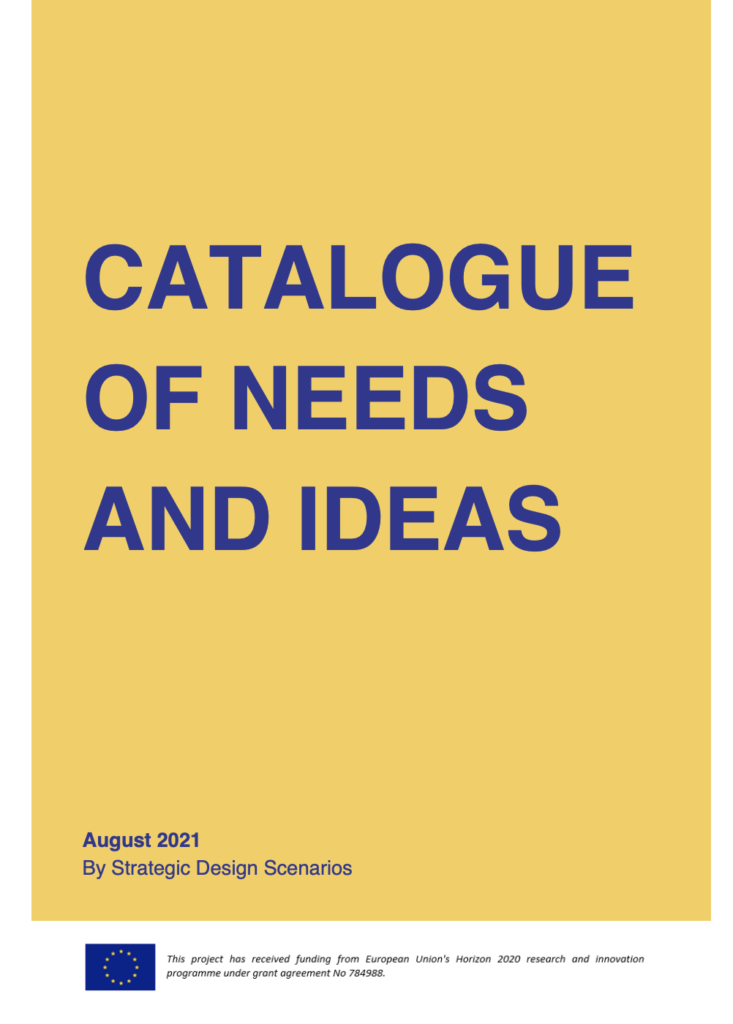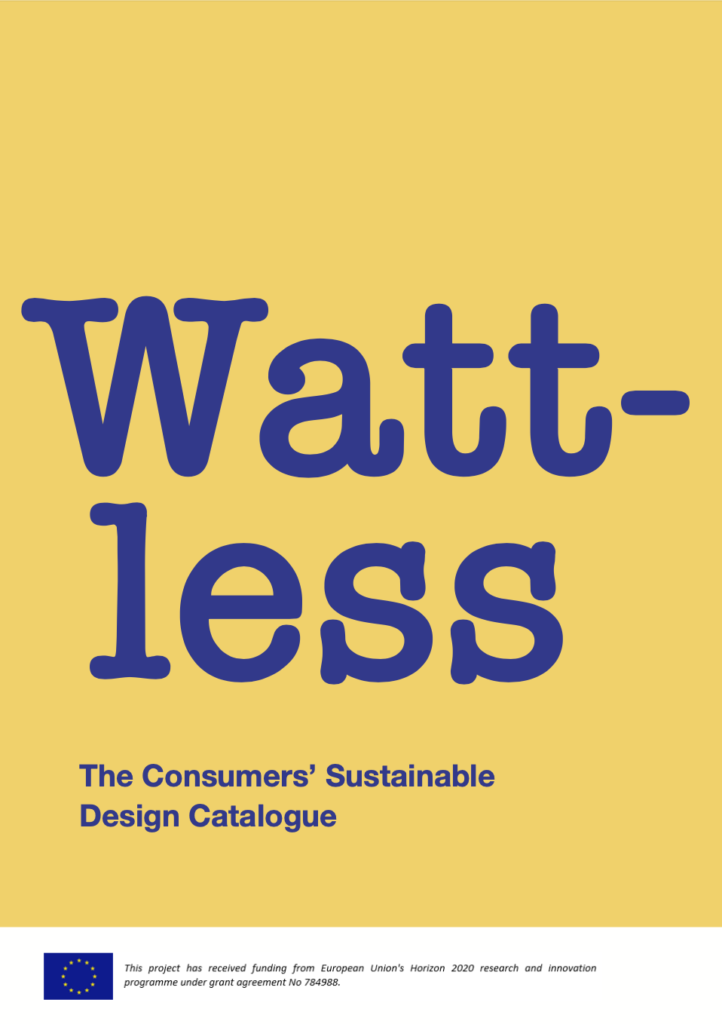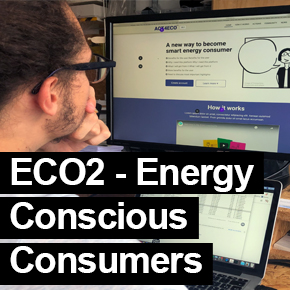ECO2 is a Horizon 2020 funded research project to increase energy literacy and improve energy efficiency through the ACT4ECO e-learning platform. Since citizens play a key role in the transition processes towards sustainable energy, the project engaged them to consume energy more consciously in their everyday life.

This Catalogue of needs and ideas is a document with a series of 103 user quotes collected during interviews, pilot sessions and workshops for the ECO2 project. These quotes are user feedback on issues related to the design of energy efficient solutions. For example, suggestions for practical solutions to induce behavioural change, the functionality of energy efficiency tools, and other new ideas for innovative solutions that have been suggested by users of the ACT4ECO platform.
All quotes are anonymous and were collected from different interviews done with actual users of the Act4eco.eu platform.
The quotes are organized in the following 5 clusters that cover different sorts of needs, barriers and gaps expressed by users of the ACT4ECO platform:
1. How can energy consumption be made more apparent?
Visible, noticeable, tangible, audible, etc.
2. How can we create better awareness about energy use and its impact?
Creating awareness, education to make informed decisions, providing relevant information at the right time, etc.
3. How can we enable households to be in control of their energy consumption?
Know your energy use profile, set targets and take active steps to reduce energy consumption, self-assess and be aware of your habits etc.
4. How can we engage households to adopt new responsible energy consumption habits?
Motivate, inspire, coach, show impact, progress and track evolution etc.
5. How to ensure that reducing energy use requires as little effort as possible and excessive use requires more?
Adjust existing energy services, ask for more effort or make it easily accessible depending on energy uses etc.
____________________________________________________________________________
In June 2021, SDS organized the ACT4ECO Design Jam, a two-day workshop gathering 15 design professionals from all over Europe to create innovative and sustainable user-centred solutions to mitigate climate change. Here’s a preview of the workshop in the video below:

The outputs from the Design Jam were refined and finalized to be presented in this catalogue that you can download for free.
____________________________________
This project also provided an opportunity to collaborate with local actors in the Belgian energy sector who shared important messages, which you can find below:
________________________________________________
ACT4ECO offers guidance to its users in five different themes:
Understanding energy consumption: users can gain a better understanding of their energy bills and identify energy-saving opportunities by breaking down the energy consumption of their household appliances and daily routines.
Improving a dwelling: users can learn how to understand, identify and prioritize different opportunities to improve the energy performance and indoor climate of their homes to increase their comfort.
Becoming a smart consumer: users can become familiar with tools to monitor and manage their energy consumption by understanding and correctly using ICT energy equipment and smart solutions.
Producing energy: users can explore possibilities for becoming a prosumer, such as investing in small-scale renewable energy production to meet their energy demand.
Avoiding bad energy habits: users can avoid taking up new or old undesirable energy consumption habits and fully realize the expected gains from their energy efficiency measures and efforts.
______________________________________________________________
Post by Selam Mebrahtu Kidanemariam
______________________________________________________________
Consortium partners:
Danish Board of Technology (DBT), Denmark
Strategic Design Scenarios (SDS), Belgium
Knowledge Economic Forum (KEF), Lithuania
University of Helsinki (UH), Finland
HEBES Intelligence, Greece
SINERGIE, Italy
University College Cork (UCC), Ireland
Applied Research Communications Fund (ARC FUND), Bulgaria
Associacao Portuguesa Para Adefesa Do Consumidor (DECO), Portugal
______________________________________________________________
